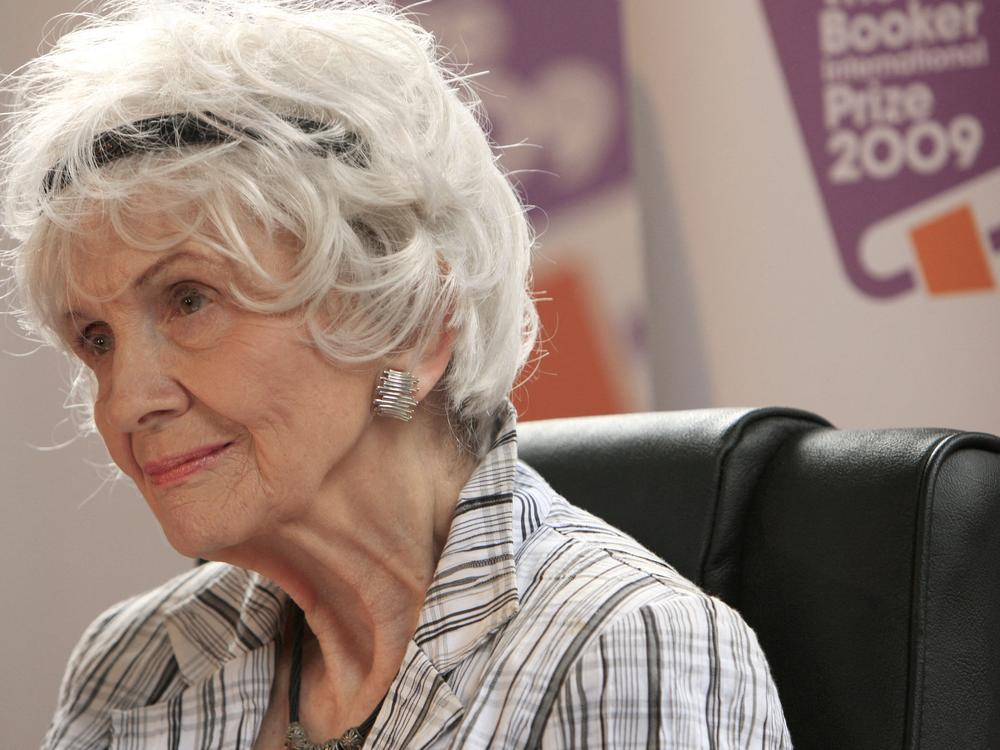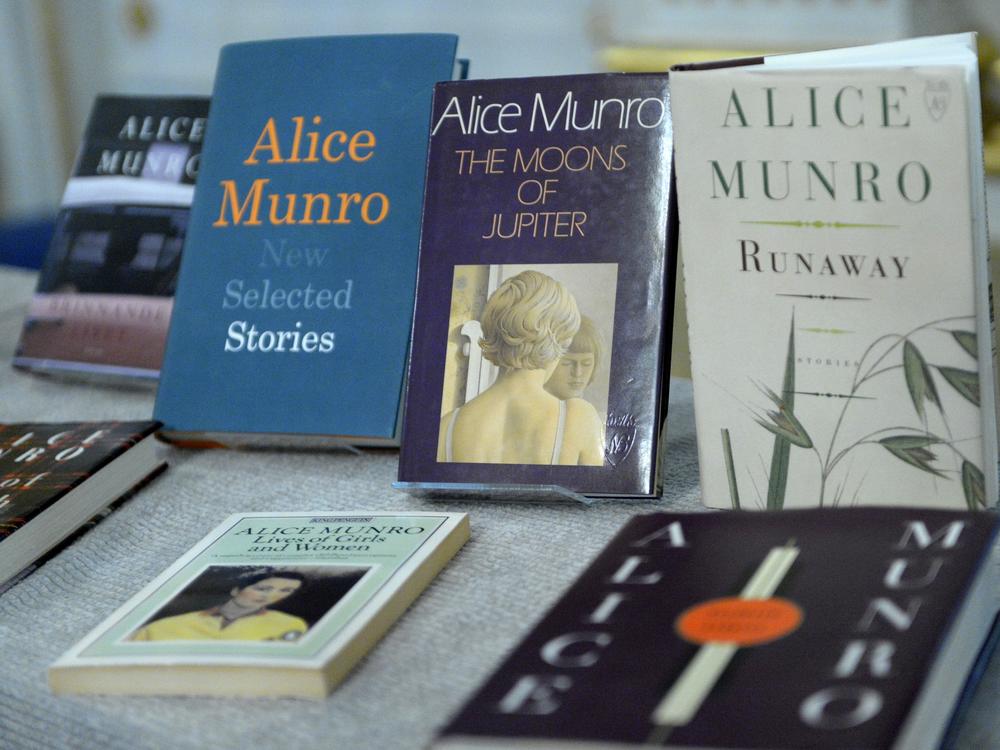Section Branding
Header Content
Alice Munro's daughter says her mother did nothing to stop abusive stepfather
Primary Content
The daughter of renowned Canadian author Alice Munro has revealed that she suffered sexual abuse at the hands of her stepfather and that her mother, a Nobel Prize winner, turned a blind eye to it.
In an op-ed published Sunday in the Toronto Star, Andrea Skinner wrote that Munro’s husband at the time, Gerald Fremlin, started abusing her in 1976 when she was 9 years old.
She wrote that she was visiting her mother that summer at her home in Clinton, Ontario, when, while Munro was away, Fremlin “climbed into the bed where I was sleeping and sexually assaulted me.”
Munro died earlier this summer at the age of 92. The author was best known for her short stories, often placing her characters in rural Ontario — where Munro grew up. She was called the "master of the contemporary short story" by the Swedish Academy that awarded her the Nobel in 2013.
Since Skinner's op-ed was published, the literary world has expressed shock and sorrow, with authors publicly grappling with the formative work of Munro with the impact of her daughter's allegations.
Rebecca Makkai, a Pulitzer Prize finalist for The Great Believers, posted on X of Munro and the allegations, "I love her work so much that I don’t want to lose it, but am also horrified to see the meanings of many favorite (foundational, to me) stories shift under us."
Skinner said she is coming forward now because she wants her story “to become part of the stories people tell about my mother. I never wanted to see another interview, biography or event that didn’t wrestle with the reality of what had happened to me, and with the fact that my mother, confronted with the truth of what had happened, chose to stay with, and protect, my abuser.”
Skinner said the abuse continued for years, with Fremlin often exposing himself to Skinner, telling the young girl about her mother's sexual needs and the “little girls in the neighborhood” that he told her he liked.
Skinner confided in her stepmother, who told James Munro, Skinner's father. James Munro did not confront his ex-wife about the abuse, and the assault continued with no adult intervention, Skinner wrote.
The abuse, and the heavy secret and silence she was forced to keep, took a drastic toll on Skinner, who developed debilitating migraines and bulimia as an adult. When she was 25, she wrote a letter to Munro, finally coming forward about the abuse.
Munro told her she felt betrayed and likened the abuse to an affair, a response that devastated Skinner, she wrote.
In response, Fremlin wrote letters to Munro and the family, threatening to kill Skinner if she ever went to the police. He blamed Skinner for the abuse and described her as a child as a "home wrecker." He also threatened to expose photos he took of Skinner when she was a girl.
Munro went back to Fremlin and stayed with him until he died in 2013, Skinner wrote. Munro allegedly said “that she had been ‘told too late,’ she loved him too much, and that our misogynistic culture was to blame if I expected her to deny her own needs, sacrifice for her children, and make up for the failings of men. She was adamant that whatever had happened was between me and my stepfather. It had nothing to do with her," Skinner wrote in her essay.
In 2005, Skinner could stay quiet no longer. She reported Fremlin, who was 80 at the time, to police in Ontario, using letters he sent to the family as evidence. He pleaded guilty to one count of indecent assault and received a suspended sentence and probation for two years.
Skinner said she never reconciled with her mother, but has since rebuilt a relationship with her siblings.
Munro's Books, the company that Alice and James Munro started together when they were married, issued a statement of support for Skinner. The company has been independently owned since 2014 and wasn't speaking on behalf of the family.
The company said, "Learning the details of Andrea’s experience has been heartbreaking for all of us here at Munro’s Books. Along with so many readers and writers, we will need time to absorb this news and the impact it may have on the legacy of Alice Munro, whose work and ties to the store we have previously celebrated. It is important to respect Andrea’s choices over how her story is shared more widely."
The statement continued, "This story is Andrea’s to tell, and we will not be commenting further at this time."
Correction
A previous version of this story misspelled Rebecca Makkai's last name.


